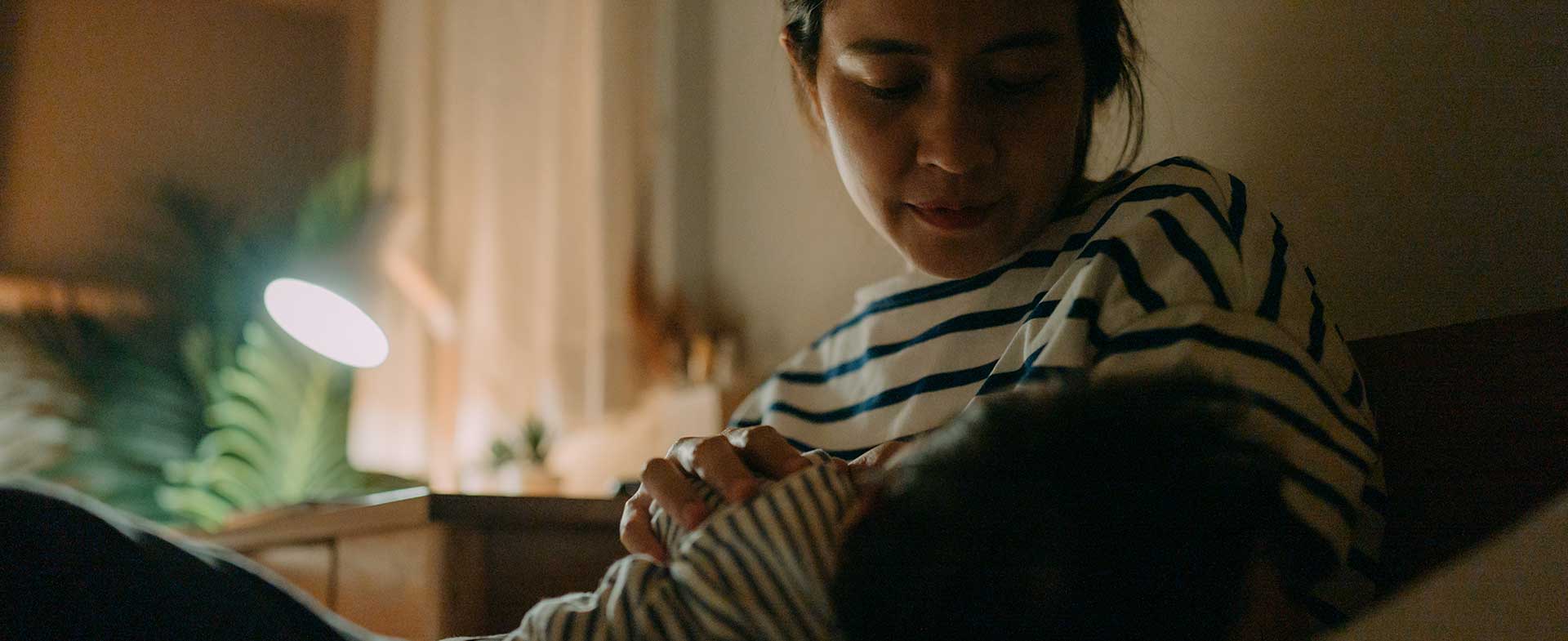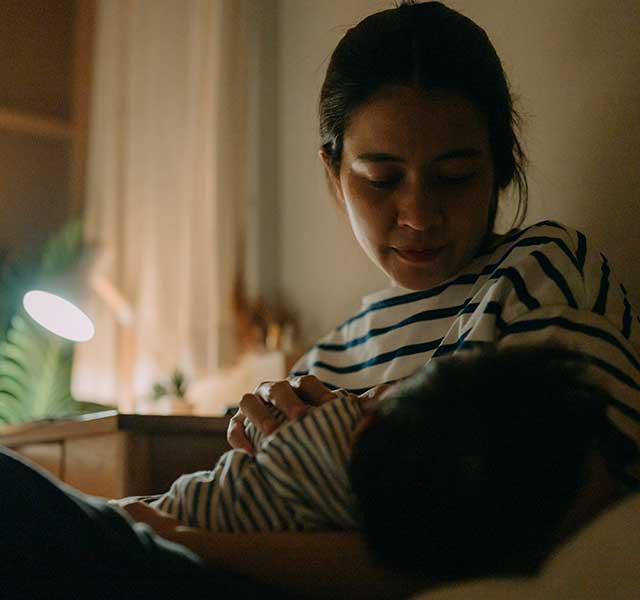Babies aren’t born with the ability to sleep all night. They need guidance and care to learn healthy sleep habits as they grow. In addition, many once-great sleepers experience sleep regression, leaving exhausted parents wondering what to do next.
Jordan Kridler, M.D., a pediatrician at Henry Ford Health, talks about baby sleep patterns, sleep regression and doable ways to help them (and you) get rest.
Baby Sleep in the Early Months
Newborns sleep up to 18 hours a day. That sounds great, except those hours are broken into one- to three-hour chunks that leave parents bleary-eyed.
“The first couple of months are usually the most challenging,” says Dr. Kridler. “Parents are getting up every couple of hours to feed and change the baby.”
To make matters worse, someone on social media claims their baby slept for a six-hour stretch in the first week. Don’t let that comparison game get to you. “It’s possible for infants to sleep that long, but it’s uncommon,” says Dr. Kridler. “And when they wake up during the night, they probably need a feeding or a diaper change, or both.”
Sleep Regression in Infants
After your baby passes the 3-month mark, longer stretches of sleep may appear. Unfortunately, just when things start to improve, many little ones experience a sleep regression—when a baby starts waking up more frequently or resisting their bedtime.
“When babies reach about 4 months of age, they start to interact with the world more,” says Dr. Kridler. “They’d rather stay awake and play with mom and dad instead of going to bed.”
If your child does regress, don’t stress. “Sleep regression is temporary and common,” says Dr. Kridler. “A healthy sleep routine can get your baby back on track.”

Need A Pediatrician?
Establishing Healthy Sleep Habits for Babies
If your 4- to 6-month-old is regressing—or hasn’t slept through the night at all—you can help them along. The right sleep routine makes all the difference. You can establish positive sleep habits if you:
- Wind down: Start a relaxing ritual like a bath or a book 20 to 30 minutes before bedtime. “Keep lights low and stimulation to a minimum, if possible,” suggests Dr. Kridler.
- Be consistent: Stick to the same bedtime for your baby each night. “If your baby gets overtired, they may get hyper and fussy,” says Dr. Kridler.
- Watch for drowsiness: Put your baby down in their crib drowsy but awake. “Babies experience several mini wake-ups throughout the night,” says Dr. Kridler. “Babies have trouble falling back to sleep if they wake up and things are different than they were when they fell asleep initially.”
- Wait a bit: Don’t rush in right away when your baby wakes up. “Watch your baby on the monitor instead of going in the room. They may calm themselves down after a minute or two,” suggests Dr. Kridler. “If you always help them, they will expect your presence every time they wake.”
- Keep it calm: Make nighttime interactions business-like. “Quietly change their diaper or feed them if needed, give them a hug or pat, and put them back to bed,” says Dr. Kridler. “If you make it exciting, you’re telling your baby that nighttime is fun time.”
- Safety first: Put baby to sleep on their back on a firm crib mattress. “It’s tempting to try putting your baby down on their side or tummy, but it’s not worth it,” says Dr. Kridler. “Follow safe sleep practices to help prevent tragedies like sudden infant death syndrome (SIDS).”
Toddler Sleep Setbacks
By the time your baby reaches the 6-month mark, sleepless nights become less and less frequent. But chances are, you’ll need to re-teach your baby their sleep routine a few times as they head into the toddler and preschool years.
“It’s normal for sleep regressions to happen when your child reaches major milestones, like crawling and walking,” says Dr. Kridler. “Toddlers love exploring the world, and they may fight sleep because they’re having so much fun. Just keep using your sleep routine, and your child will usually get back into their healthy habits.”
Enlist Help When Needed
If your child is still sleeping like a newborn after 6 months of age, reach out to your pediatrician. “Your healthcare provider can help you find the root cause of your child’s sleep troubles,” says Dr. Kridler. “In most cases, you need some changes to your sleep routine. But be patient: your baby will need a few weeks to unlearn their old sleep habits.”
Helping your child learn to sleep isn’t always easy, but it’s well worth the effort. “Sleep is just as important to our health as nutrition and exercise,” says Dr. Kridler. “Invest in your baby’s sleep routine now, and you’ll help them establish healthy habits for life.”
Reviewed by Jordan Kridler, M.D., a pediatrician who sees patients at Henry Ford Medical Center – Royal Oak.



